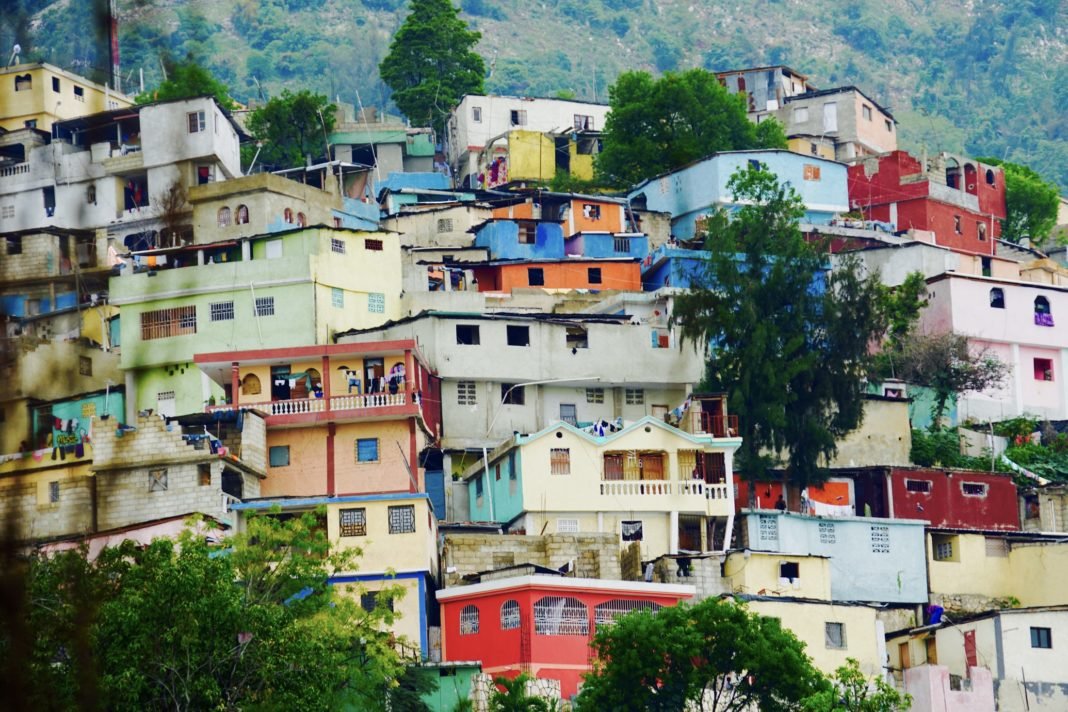Haiti’s crisis has reached a critical moment.
Headlines in the international media regarding Haiti have recently taken a turn for the worse: Political power grapple, civil unrest, hunger, and unprecedented levels of violence. In this past year alone, Haiti has suffered the assassination of President Jovenel Moïse, a 7.2 magnitude earthquake, and a severe U.S border migration crisis at the hands of whip-holding, horse-riding marshals.
Helen La Lime, the Head of the UN Integrated Office in Haiti, issued a stark warning to the Security Council on Haiti’s critical situation, stating that “Haiti is currently undergoing one of the most fraught periods of its recent history.” In light of this, one cannot help but wonder: how is this still happening in 2021? As said by La Lime herself, how can we “ensure that Haiti does not become a forgotten crisis?”
If anything, any viable solutions for the crisis must take into account Haiti’s reality. While international intervention seems like the most obvious answer, a deeper understanding of Haiti’s past with foreign powers is essential to argue against interference, and for alternative options that guarantee the protection of the self-determination of Haitian citizens in the outcome of the crisis. As argued by Daniel Foote, the ex-U.S special envoy for Haiti, the country cannot “enjoy stability until its citizens have the dignity of choosing their own leaders.” The only obstacle is how to get there.
Haiti’s history is interlinked with the current political instability and lack of proper democratic institutions.
In the 17th century, Haiti flourished economically under French colonial conditions. It became the richest colony of the French, “producing half of all the sugar and coffee bought and sold in Europe.” Like many other colonies of the time, it was composed of 50,000 enslaved Africans. The Haitian Revolution for independence lasted over a decade, and once victorious, Haiti became the first black independent republic.
However, international recognition of Haiti came 60 years after its independence, as major powers of the world refused to establish diplomatic ties with Haiti over fears that the rebellion would inspire enslaved populations in their own countries. This lack of trade left the new state with limited resources to develop its economy. To make matters worse, France forced Haiti to pay reparations of 150 million gold francs, equivalent to $33 billion today. If Haiti refused, the French had cannon-carrying warships prepared as a response. It’s important to note that the French knew Haiti could not make such payment of the debt, and they further knew Haiti could not afford another war. Haiti’s debt to the French, hence, was a product of extortion.
Exploited further by high-interest loans of French, American, and German banks, it took Haiti over 100 years to finally pay off the debt. The effects of the debt were rippling, and are directly correlated to the country’s inability to have developed access to healthcare, public infrastructure, and a national school system. Projects to develop the country were halted at the expense of this excessively punitive debt.
In the 20th century, Haiti underwent two different occupations by the United States. In 1919, Woodrow Wilson sent US Marines to declare Martial law in an attempt to protect the country’s investments in Haiti. It is reported that the US military alone was responsible for the killing of 2,000 Haitian demonstrators during the first occupation. Haitian historian and professor at the State University of Haiti, Georges Eddy Lucien, believes the first US occupation set in “motion cycles of capital accumulation and inequality” that divided Haitian society into visible social classes.
Soon after the US left, François Duvalier seized power. In 1967, he declared himself president for life. His regime developed into that of a dictator once he established death squads to silence opponents, and changed the constitution so that nepotism would determine who would be the next president of Haiti. He also shared a strong anti-communist stance, which the US endorsed. As seen in other authoritarian states (e.g, Rwanda), the dictatorship was a time of economic prosperity for the nation and a time where Haitians of lower socio-economic status found themselves with the opportunity of an education. Following Duvalier’s death, his 19-year-old son took over the title of “president for life,” but was quickly exiled.
In 1994, the US occupied Haiti for the second time, lasting 6 months. This occupation was one involving other actors of the international sphere, as it was backed by the UNSC in an operation entitled “Operation Uphold Democracy.” Fellow second-year IE University student Céline Duchatellier, of Haitian nationality, recalls how her family remembered the US Embargo on Haiti. “Nothing was coming into Haiti. While we were a fruitful agricultural country, our reliance on imports was somehow big. It reached a point where it was unsafe to be outside.”
Since then, Haiti’s political leaders have all faced a similar fate as part of a vicious struggle for power: leaders, such as Jean-Bertrand Aristide (the first President to be elected in free and peaceful elections), have risen, fallen, and met violent ends, coups or exiles. Moïse himself was a controversial President, who ruled by decree, and who extended his term in office in violation of Haiti’s constitution until his death.
Here, the key question to reflect upon is whether foreign powers, particularly the US, ever gave Haiti a fighting chance to develop its own political culture, democratic institutions, rule of law, and national interests. According to James B. Foley, former US diplomat and ambassador to Haiti, the answer is clearly no. Instead, he argues that foreign powers bear the responsibility for the “root causes of Haiti’s contemporary issues.”
The current political vacuum in Haiti gives a rise to violence and illegitimate actors.
The assassination of Moïse created a political vacuum between government officials and other powerful non-state actors, such as the gangs and members of the elite. As of today, various actors are directly challenging the interim Prime Minister, Ariel Henry, who was supported by the Biden administration.
On October 17th, 2021, during Dessalines Day (Haiti’s celebration of the revolutionary hero who gained independence), Ariel Henry was on his way to speak at the monument honoring the former President, until his convoy came under heavy gunfire. Jimmy Cherizier, a police officer turned gang leader, and as described by Céline, “the most feared man in Haiti,” took control of the ceremony. He further took advantage of the situation to increase his own legitimacy, portraying politicians as “pigs” to his supporters. These supporters included rifle-carrying Haitians, most of whom are dependent on Cherizier’s promises of safety and resources. This incident showed how problematic the absence of legitimate and acceptable leaders in government can be. As happened in Haiti, citizens will turn to non-legitimate figures of the community who can provide for them and give them the popular support, leading to acceptance, that these leaders such as Cherizier, need.
The high levels of violence are directly related to the political turmoil in Haiti, and as a consequence, have resulted in nearly 300,000 Haitians fleeing to South America in 2020. Kidnappings are at an all-time record high, and it’s become a common risk for both the rich and the poor. The figures are grim. As found by the Center for Analysis and Research in Human Rights in Haiti, the gang “400 Mawozo” is responsible for 80% of the 395 kidnappings that took place from June to September this year.
It is interesting to note that the kidnappings do not only stem from gangs, but from the politicians themselves. According to Louis Herns Marcelin, a Haiti expert at the University of Miami, “about 60% to 70% of senators have their own gangs, and the oligarch families who control the private sector in Haiti either have their own gangs or have gang leaders on their payroll.” Unfortunately, one can deduce that a sense of safety is a social privilege in Haiti, most probably secured through corruption.
Solutions such as intervention, self-determination, or reliance on civil society bring different implications.
Of all the options available to ease Haiti’s crisis, its relation with the United States is central. Not only is the United States Haiti’s largest trading partner, with over 80% of Haitian exports directed to the country, but it was for the longest time the top donor for development and relief aid towards Haiti.
Some argue that major international intervention, led by the US, is needed to provide Haiti with enough security so that its interim government can build public trust to govern until the next elections. Here, stability could allow for the improvement of basic human rights as well. On the other hand, one has to consider that Haiti’s past is too deeply intertwined with the United States. Most of Haiti’s current issues are because external powers became involved in the country’s internal affairs. Whatever “help” Haiti received in the past through foreign intervention has proven to cause more turmoil, benefitting the elite actors of society or the country hosting the intervention itself, over the interests of the greater majority.
Others argue that outside interference must be held back and Haiti’s population must determine the country’s future. Instead, countries like the U.S need to stop supporting the “bad actors” of Haiti, rather than directly act upon the territory of the country. Again, there is a fine line between political pressure and intervention: political pressure can always be interpreted as non-physical interference in a state’s internal affairs.
Lastly, there is a strong insistence that the key to resolving Haiti’s issues lies in civil society, and in the network created by NGOs acting in areas related to social, economic, educational, and health development. The counterargument here is that these groups are just as powerless as the majority of the population, and will need to find a way to work with the political leaders in order to find a common ground.
As of now, Haitian politicians from the opposition and from coalition groups have managed to reach an agreement on September 11 to form a Provisional Electoral Council, promising to hold elections no later than the second half of 2022. The extent to which this accord will hold is debatable and sadly, unpredictable, given Haiti’s volatility. Other than this, Biden’s response to Haiti’s current crisis has come under heavy criticism as one lacking effectiveness. He has been pushed to intensify relief efforts (ruling out military assistance in the process) and to halt deportations, especially after the Del Rio treatment of Haitian migrants.
So…Is there “hope” for Haiti?
When asked if she considers Haitians to be “a resilient people”, Céline’s answer was resolute: “Definitely.” She added depth to her response by implying that every generation has had a set of struggles in Haiti’s turbulent history, “but to find the light at the end of the tunnel after every situation is something to be proud of.”
However, it is wrong to assume that the resilience of the Haitian people will continue. Resilience can be pushed to the brink, especially if the people feel powerless and frustrated with their leaders, or if they have no structural support to enact change. “While it is true that we are resilient, it’s as if we take 3 steps back every chance we have to move forward,” says Céline.
With that said, the world has been slow to react to Haiti’s rather fast “crash and burn” into political chaos and social upheaval. While there is no easy answer to fixing Haiti, or how to go about it, we can start by acknowledging, discussing, and educating ourselves on its ongoing troubles. We can further understand how the foreign policies and politicians we decide to support will affect Haiti, and how we can contribute to a solution for Haiti’s crisis.
For more sources of information on Haiti, check out:








